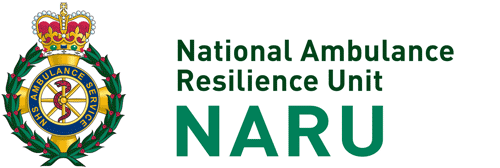CMO Sally Davies on NHS preparedness for infection diseases
In the short video the CMO describes:
NHS preparedness
- Other countries have seen their first cases of Ebola. There have been small outbreaks in both the United States and Spain.
- I recognise this is worrying for the UK public – but want to reassure you that the chances of catching Ebola are very low.
- This Ebola outbreak might be new – but infectious diseases are not. The NHS deals with them every day and UK staff are very well trained in managing them.
- Our infection control procedures are world-leading and well-practised – we are absolutely prepared to deal with a case of Ebola in the UK.
- All areas have developed and tested local plans to make sure their staff know exactly what to do in the event of a confirmed case of Ebola.
- We have been expecting a first case and we are well prepared to deal with it.
- Experts right across government are working around the clock – not only to make sure we are prepared here in the UK – but also to make sure we are doing all we can to help in West Africa.
- Our priority is making sure we keep the UK public, and our staff, safe and give anybody who is infected the best care possible.
Beds and protective equipment
- We are not expecting a large number of cases in the UK – only a handful in the coming months.
- But we do have plan in place to manage any further cases - we have specialist isolation beds ready and waiting at the Royal Free in London and other centres can also be stepped up to receive cases if needed.
- We keep the situation constantly under review. If more beds are needed they will be provided.
- All hospitals have supplies of personal protective equipment which forms part of their day-to-day infection prevention and control procedures.
- Specialist infectious diseases units have doctors and clinical staff who deal with infectious diseases on a daily basis.
Testing the system
- The government has held a practise exercise to test the system to ensure we are as prepared as possible.
- In this we asked actors to arrive at NHS premises as if they had suspected cases of Ebola. This allowed the staff in affected hospitals, GP practices and across government to practise their response.
- This was an excellent opportunity to test the system and I was very pleased with how the test went.
Screening
- I understand there is a lot of concern about Ebola being spread across the country through people coming into the country from West Africa.
- I’m sure many people will already know that screening arrangements are in place at the UK’s main ports of entry for people travelling from the affected regions: Liberia, Sierra Leone and Guinea. This will offer an additional level of protection to the UK. Travellers from other African countries are not screened.
- It involves assessing passengers’ recent travel history, who they have been in contact with, and where they are going next, as well as a possible medical assessment.
- No system is guaranteed but screening will help us to identify potential cases arriving in the UK.
- The main purpose of screening is to identify, and give advice to, passengers coming from high risk areas who will be spending time in the UK. This is to provide them with relevant advice on the nature of the virus, what to be aware of and what action to take should they begin to display any symptoms.
- If any passenger that is screened is suspected of having Ebola, they will be transported to the nearest hospital and put in an isolation room. A blood sample will then be sent to Public Health England’s specialist laboratory for rapid testing.
- If someone has tested positive for Ebola, there are procedures to identify people who may have been exposed, monitor them closely and quarantine them if they show symptoms.
- It is important to remember that Ebola can only be caught through very close contact with an infected person’s bodily fluids – like blood, vomit or diarrhoea. There is a detailed process for contacting people that a patient may have been in contact with.
- We will work with the patient to make sure we have a clear picture of everybody with who they have been in close contact.
- There is no doubt that there is a crisis in West Africa, but I want everybody in the UK to remember that their risk of catching Ebola is very low.
